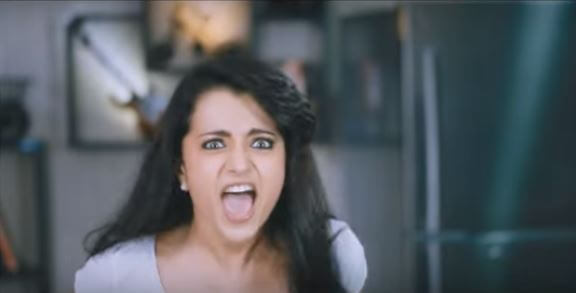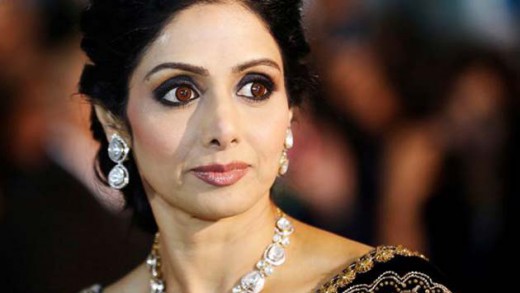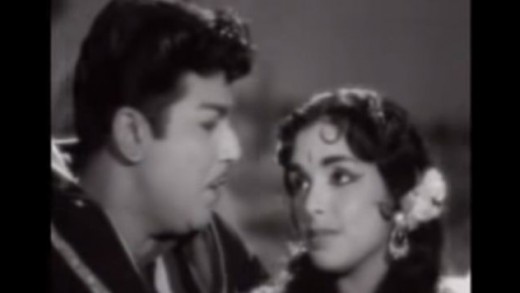Continued from The Portrayal of Women in Tamil Cinema: Part 1
There is the overused scenario of “love failure” in Tamil cinema. Time and time again, we hear the story of a woman breaking up with a man for different reasons – and it is primarily the woman’s fault.
Unfortunately, the truth is this kind of screenplay is well received in South India (usually by men), so it leads to a complete frenzy of movies containing scenes of this sort as well as songs that gain extreme popularity.
While there are too many of these songs to list, one key example is Simbu’s Beep Song, which caused much controversy despite being unfinished and unreleased.
A particular verse that received much attention is the song Kadhal en Kadhal, where they sing lyrics that translate to “hit her, kick her, leave her”. This very much insinuates abuse and all the things one should not do after rejection or break up. The main audience for Tamil films is men between the ages of 15-25 who are very likely to be influenced by this from the beginning.
Due to such demand, it feels as though it has become an obligation to include a scene or song entirely about denouncing women. In Sivakarthikeyan’s comedy-drama film Rajini Murugan there are scenes and a song dedicated to this function alone, even though the same male and female characters are together in the end.
With this in mind, there are some scenes from popular Tamil movies from the early 2000s and present day that I will be discussing.
In this scene, Vishal’s character does not think twice before calling the female character vaadi and podi in the most demeaning tone and tenor even though he was at fault. However, that is not the least of one’s problems as he goes on to give a full-on rant about how he has the right to be promiscuous and be in more than one relationship at a time.
He also makes a very irrelevant analogy about how having relationships with many women at the same time before marriage is as justifiable as completing many job applications before receiving a job. This is clearly an unimpressive attempt at defending his purely misogynistic principles.
What makes things worse is that he weaves a very long winded “speech” which finally leads him to blame women as the reason for why he is like this. Yet the background music and his acting is made to look like what he was saying was very heroic and admirable.
Throughout this whole sequence in “Sivakasi”, Vijay’s character is lecturing Asin’s character on how to dress and what to expect if she dresses the way she does. He imposes the view that she was asking to be touched inappropriately because of what she was wearing, so she should take the blame and not the man who had the nerve to touch her in that way.
Here, the female character falls victim to the outdated perspective that as women, we should make adjustments and cover ourselves to avert the man’s eye. In the end, nothing changes about the men who dare to disrespect and behave inappropriately towards women. Nobody asks to be violated.
(You only need to watch up to 2:30)
Evidently, there is no explanation needed to tell you how offensive this is. Here, Jeyam Ravi’s character is being convinced by his friend to “discipline” his wife. Although it is used for supposed comedic purposes, the fact that this scene was made to look like there was no problem with having the urge to abuse your wife makes it a very serious issue.
Later in the movie, rape is also used for comedic effect. Jeyam Ravi forcefully jumps on Trisha and very clearly says that he will rape her after they have a fight. This causes much outrage since rape and abuse are such prevalent issues in India. These movies are likely to be watched by millions of young men in South India and Sri Lanka. But instead of educating and informing, the directors make light of these issues for cheap laughs.
While the movie Bahubali is not a Tamil film, it was a very popular movie throughout South India in 2015. While watching this scene, I felt nothing but discomfort when Tamanna’s character is forcefully stripped of her clothes and made to look more “beautiful” at the end.
It is also very unsettling watching how they overly romanticized something that could be called sexual assault in the real world. Once again, the wrong message is displayed alongside their incapability of defining the line between romance and sexual assault.
The scene above from Rajini Muruga is just one example of the many times in which Tamil films have romanticized stalking. When first watching this scene, it seems as if there is nothing wrong with it.
It is only after that one realizes how effectively they managed to make a man waiting for a whole day outside a girl’s house while staring into her windows seem normal.
These kinds of scenes are so prominent in Tamil cinema that it does not ring an alarm much among ordinary people. Some may say that these acts can only be found in films, and does not influence the public to such an extent.
Having been to Sri Lanka myself and having heard stories from friends who have been to India, many men are willing to shamelessly follow you around until you reach your home or for as long as possible. It may not be as crazy as the scene shown, but it certainly is very close!
(You only need to watch up to 2:30)
In this scene, the stigma around women drinking is presented very brashly. We see a “control freak” boyfriend flipping out after discovering that his girlfriend drinks. While I believe that drinking is one of the most harmful things one can do to one’s body, this scene had nothing to do with health but holds a very prejudiced view that women should not drink.
In the midst of his outburst, the male character is asked what is wrong with women drinking. He answers “When men are drunk, they touch pickles (typical side dish when drinking). But when women are drunk, they touch men.”
I am not denying that women can inappropriately touch men when they are drunk, but on what grounds is he saying that men cannot do the same? There is nothing more one can do than laugh at such a reply in a movie where that line was meant to seem more “influential”.
In this essay, I have called out the Tamil film industry on numerous negative accounts. Although we have a long way to go, I can say that there have been many improvements in entertainment that I am proud of as a Tamil myself. With the recent popularity of the film Irudhi Suttru and the rise of more strong female characters and directors, we feminists are reminded that there is a brighter side.
Related articles:
Kollywood: A Biased Film Industry
Bollywood’s Tryst with Tamils
Tamil Serials and What You Didn’t Know About Them











